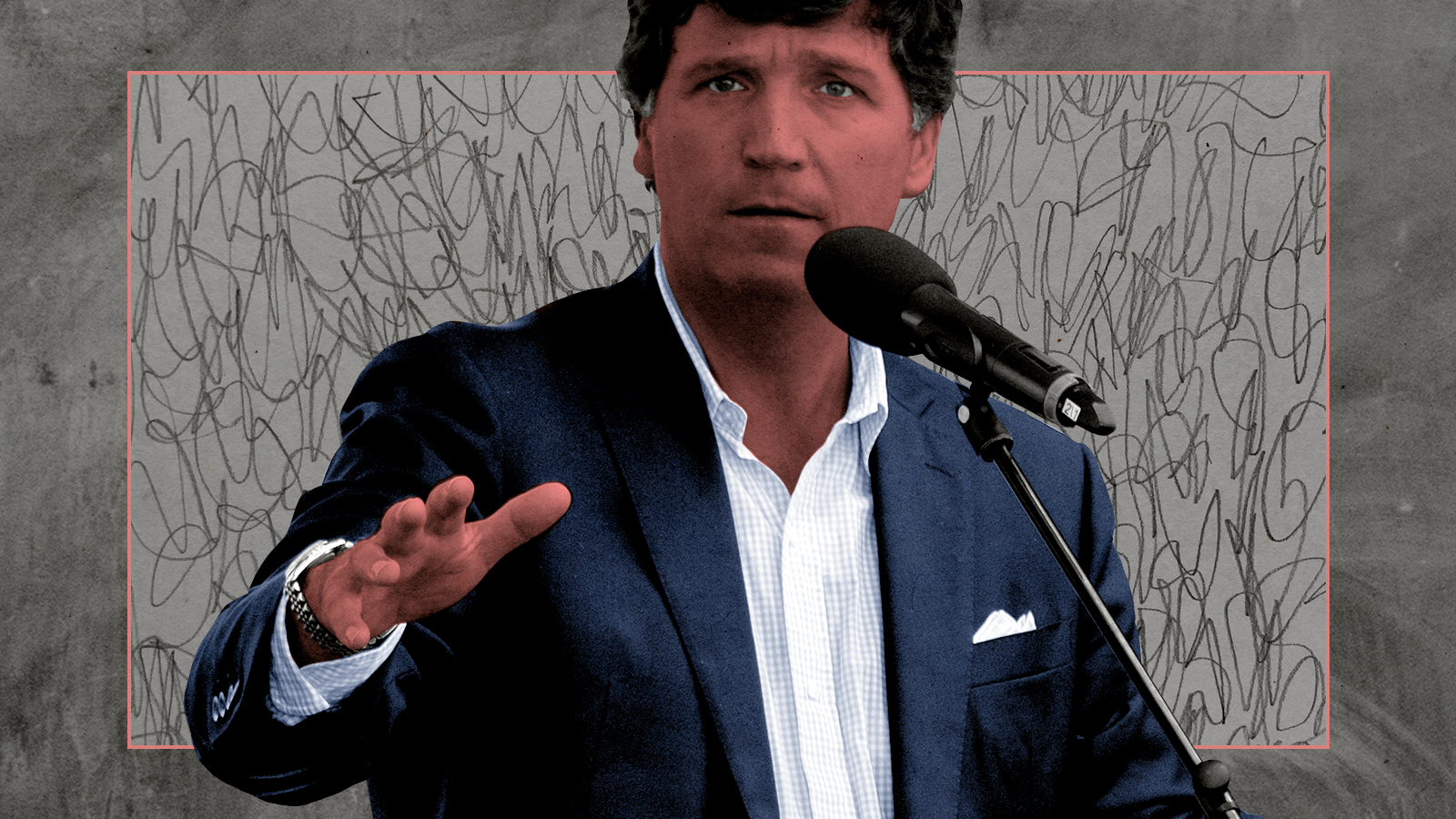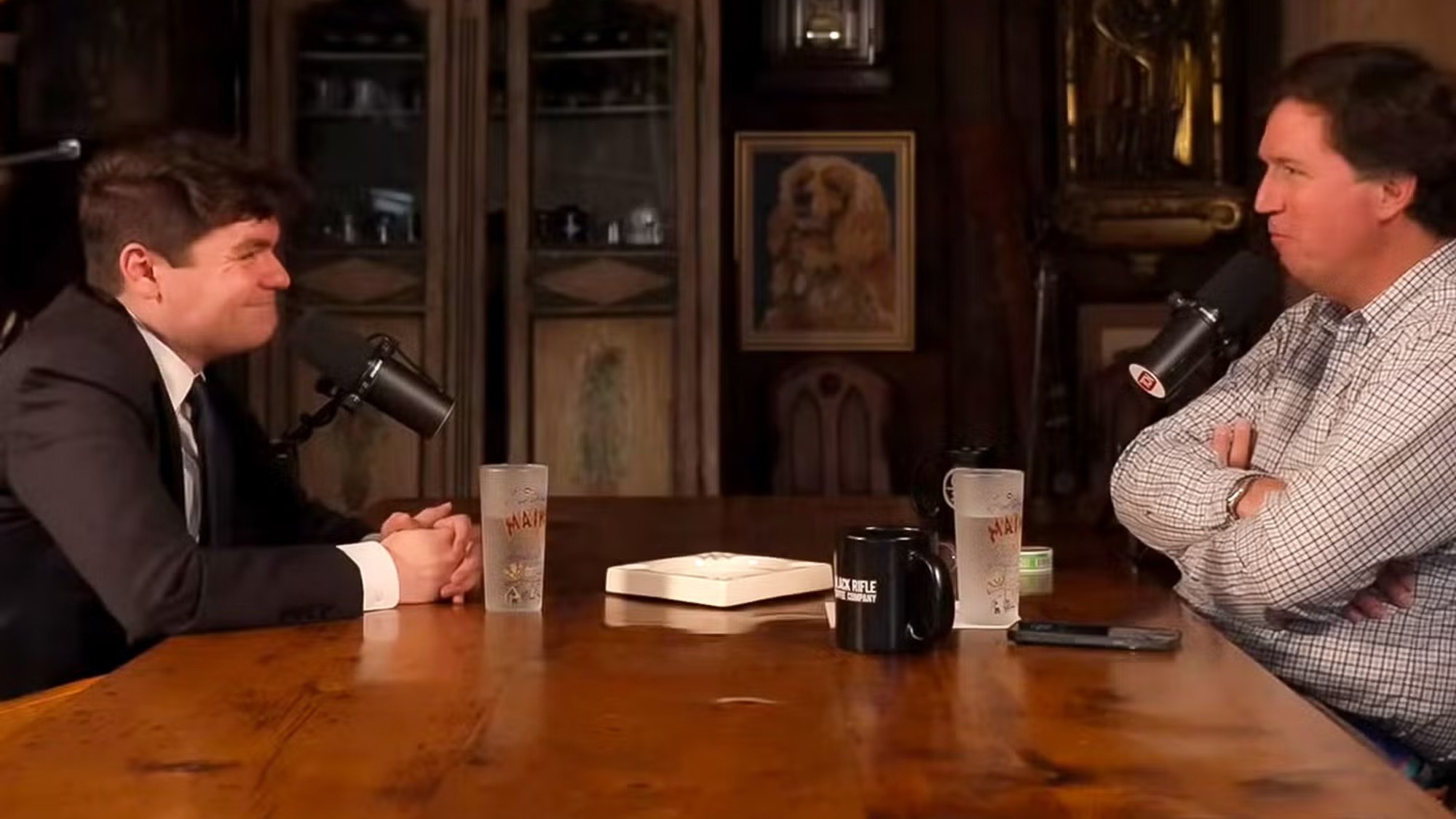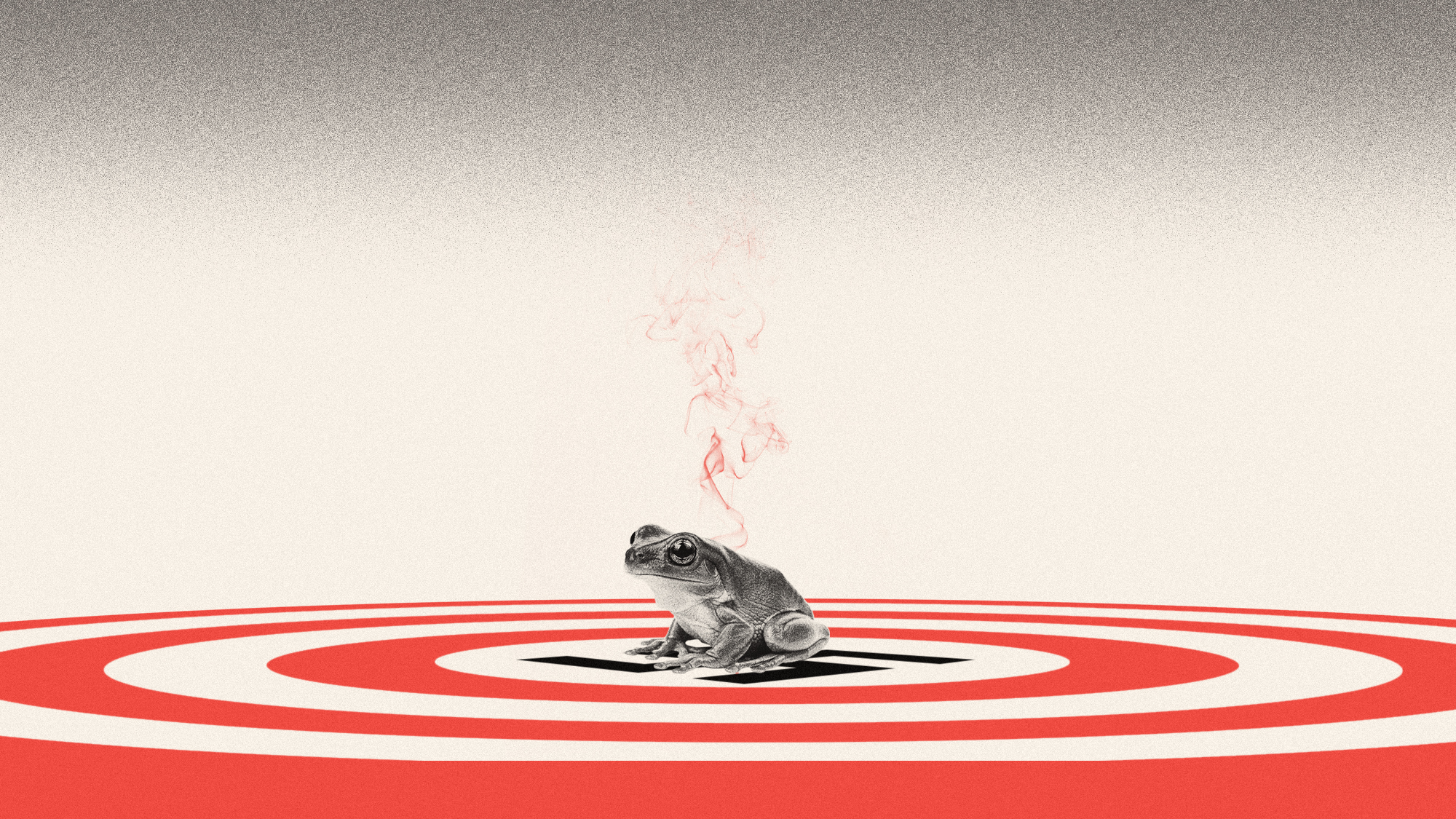Tucker Carlson knows how terrible we are — minute by minute
What a new profile tells us about Fox News and democracy


A free daily email with the biggest news stories of the day – and the best features from TheWeek.com
You are now subscribed
Your newsletter sign-up was successful
One of my most firmly held beliefs is that TV news — cable news, in particular — is terrible for democracy.
Television is a medium that often prioritizes being entertaining over being informative or enlightening or even helpful. What the networks want is to grab your eyeballs, and keep them. Viewers can always turn to the next channel, after all, to watch Friends reruns or some home-improvement show. The problem, of course, is that it's much, much easier to get viewers' interest with drama and outrage than with eat-your-spinach coverage of politics and policy. So drama and outrage are what we get.
A couple of stories over the weekend show how the process works, and why it's so terrible.
The Week
Escape your echo chamber. Get the facts behind the news, plus analysis from multiple perspectives.

Sign up for The Week's Free Newsletters
From our morning news briefing to a weekly Good News Newsletter, get the best of The Week delivered directly to your inbox.
From our morning news briefing to a weekly Good News Newsletter, get the best of The Week delivered directly to your inbox.
The first, at Politico, documents "The Rise and Fall of the Star White House Correspondent." While it purports to be about journalism generally — and name-checks print reporters like Maggie Haberman of the New York Times — it's really about the television news industry and how over the decades the White House beat transformed TV reporters like Sam Donaldson and Jake Tapper into celebrities with prime-time shows and book deals and very, very comfortable lives.
But the current group of reporters covering the presidency doesn't seem to be on track for such rewards. Why? Because Joe Biden's White House is so boring, especially when compared with his predecessor. There's less opportunity to take a stand, report ugly tales of palace intrigue or otherwise burst into the public consciousness like (say) CNN's Jim Acosta and Kaitlan Collins did during the Trump Administration. And that makes the job a whole lot less fun.
There's news to cover, of course. A war in Europe. Inflation at home. There's still a pandemic, sort of. Somehow, though, it's just not as sexy or thrilling. The public is tuning out.
"The work is a lot less rewarding, because you're no longer saving democracy from Sean Spicer and his Men's Wearhouse suit," an anonymous correspondent told Politico's Max Tani.
A free daily email with the biggest news stories of the day – and the best features from TheWeek.com
There's a lot of contempt and arrogance loaded into that quote. But it makes it easy to see how the incentives of TV stardom might distort the kind of Washington news we see every night. And it's not difficult to wonder how much those incentives shape the electorate in turn.
That leads us to the second weekend article — a series of articles, actually — at the New York Times, about the rise of Tucker Carlson to the top of the heap at Fox News, and as a natural heir to Donald Trump's anti-immigrant populist politics.
Nick Confessore, the Times reporter, documented how Carlson failed in stops at CNN and MSNBC. When he got a chance to lead his own show at Fox News, Carlson and his team responded by paying very close attention to minute-by-minute viewer ratings numbers to see what the audience wanted. And what did the audience want? Hostility to immigrants and minorities.
So Tucker gave it to them.
"He is going to double down on the white nationalism because the minute-by-minutes show that the audience eats it up," a former Fox employee told the Times.
There's an unsettling truth here. It's easy to blame Tucker and other Fox News hosts for enraging their audiences and leading viewers astray. But it's also true that he brings in 3 million viewers a night. (And for what it's worth, he denied tracking ratings.) Lots of Americans want what Tucker Carlson is selling. He's happy to sell. And of course, he makes the choice to sell it. "I don't think people like Tucker are innocent victims of audience expectations, so much as co-creators of a cage of insanity in which they all find themselves trapped in an infinity-grievance doom loop," The Atlantic's Derek Thompson wrote Saturday on Twitter.
Print news isn't entirely immune to these temptations, of course. A whole generation of newspaper journalists entered the profession after they watched Robert Redford and Dustin Hoffman take down President Nixon at the movies. And print journalism isn't really print anymore: Everything is on a screen and online, where tracking tools let editors and publishers know — minute-by-minute — what the audience actually wants. Guess what? It's drama and rage. They'll probably get it. And our politics will suffer as a result.
We're all TV news now.
"American democracy is not a reality show," President Biden said Saturday night at the White House Correspondents Association dinner. Unfortunately, he's wrong. We'll regret it.
Joel Mathis is a writer with 30 years of newspaper and online journalism experience. His work also regularly appears in National Geographic and The Kansas City Star. His awards include best online commentary at the Online News Association and (twice) at the City and Regional Magazine Association.
-
 Nuuk becomes ground zero for Greenland’s diplomatic straits
Nuuk becomes ground zero for Greenland’s diplomatic straitsIN THE SPOTLIGHT A flurry of new consular activity in the remote Danish protectorate shows how important Greenland has become to Europeans’ anxiety about American imperialism
-
 ‘This is something that happens all too often’
‘This is something that happens all too often’Instant Opinion Opinion, comment and editorials of the day
-
 House votes to end Trump’s Canada tariffs
House votes to end Trump’s Canada tariffsSpeed Read Six Republicans joined with Democrats to repeal the president’s tariffs
-
 The billionaires’ wealth tax: a catastrophe for California?
The billionaires’ wealth tax: a catastrophe for California?Talking Point Peter Thiel and Larry Page preparing to change state residency
-
 Bari Weiss’ ‘60 Minutes’ scandal is about more than one report
Bari Weiss’ ‘60 Minutes’ scandal is about more than one reportIN THE SPOTLIGHT By blocking an approved segment on a controversial prison holding US deportees in El Salvador, the editor-in-chief of CBS News has become the main story
-
 American antisemitism
American antisemitismFeature The world’s oldest hatred is on the rise in U.S. Why?
-
 The GOP: Will it welcome antisemites?
The GOP: Will it welcome antisemites?Feature That Carlson would grant Fuentes access to his massive audience is proof that his hate ‘is entering the MAGA mainstream’
-
 Has Zohran Mamdani shown the Democrats how to win again?
Has Zohran Mamdani shown the Democrats how to win again?Today’s Big Question New York City mayoral election touted as victory for left-wing populists but moderate centrist wins elsewhere present more complex path for Democratic Party
-
 Nick Fuentes’ Groyper antisemitism is splitting the right
Nick Fuentes’ Groyper antisemitism is splitting the rightTalking Points Interview with Tucker Carlson draws conservative backlash
-
 Millions turn out for anti-Trump ‘No Kings’ rallies
Millions turn out for anti-Trump ‘No Kings’ ralliesSpeed Read An estimated 7 million people participated, 2 million more than at the first ‘No Kings’ protest in June
-
 Ghislaine Maxwell: angling for a Trump pardon
Ghislaine Maxwell: angling for a Trump pardonTalking Point Convicted sex trafficker's testimony could shed new light on president's links to Jeffrey Epstein
